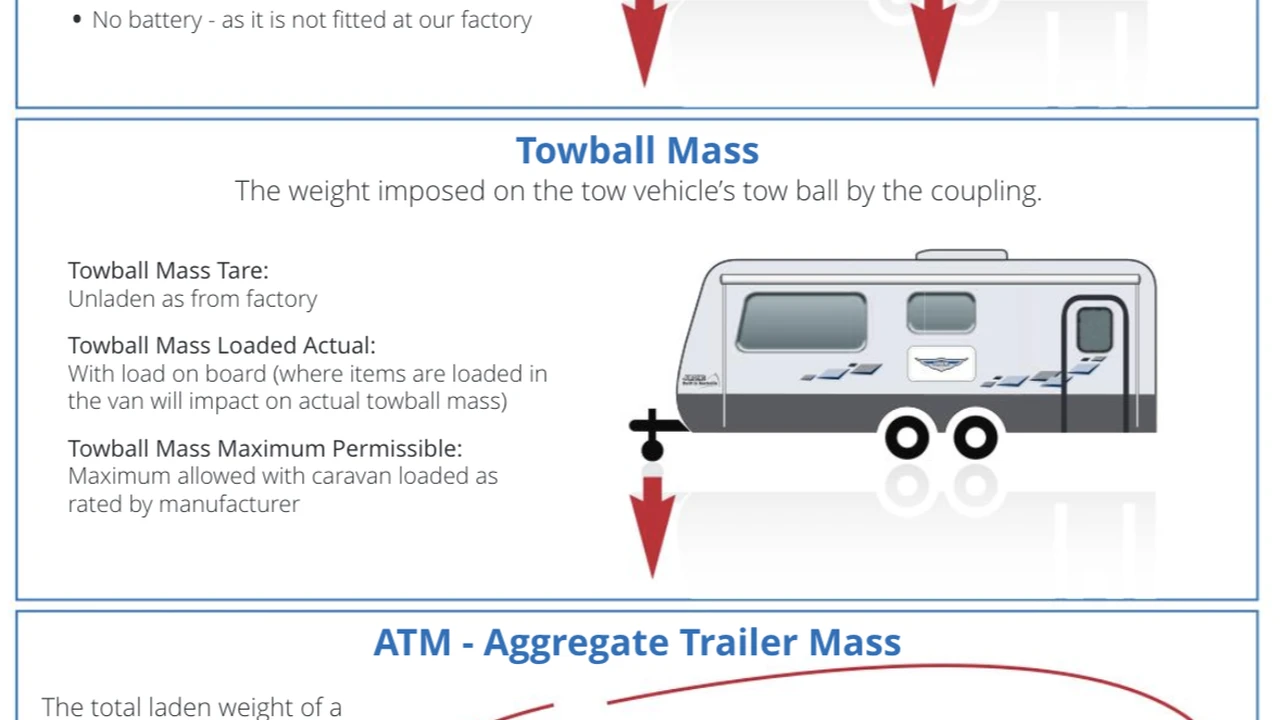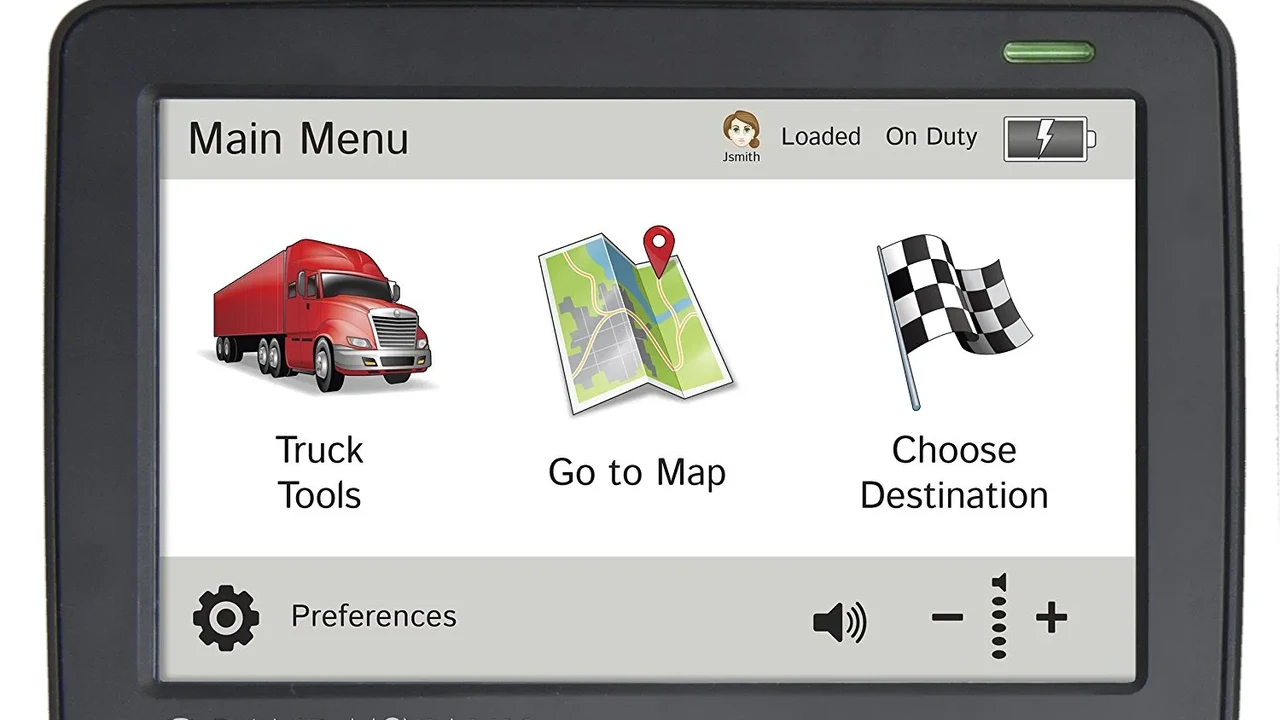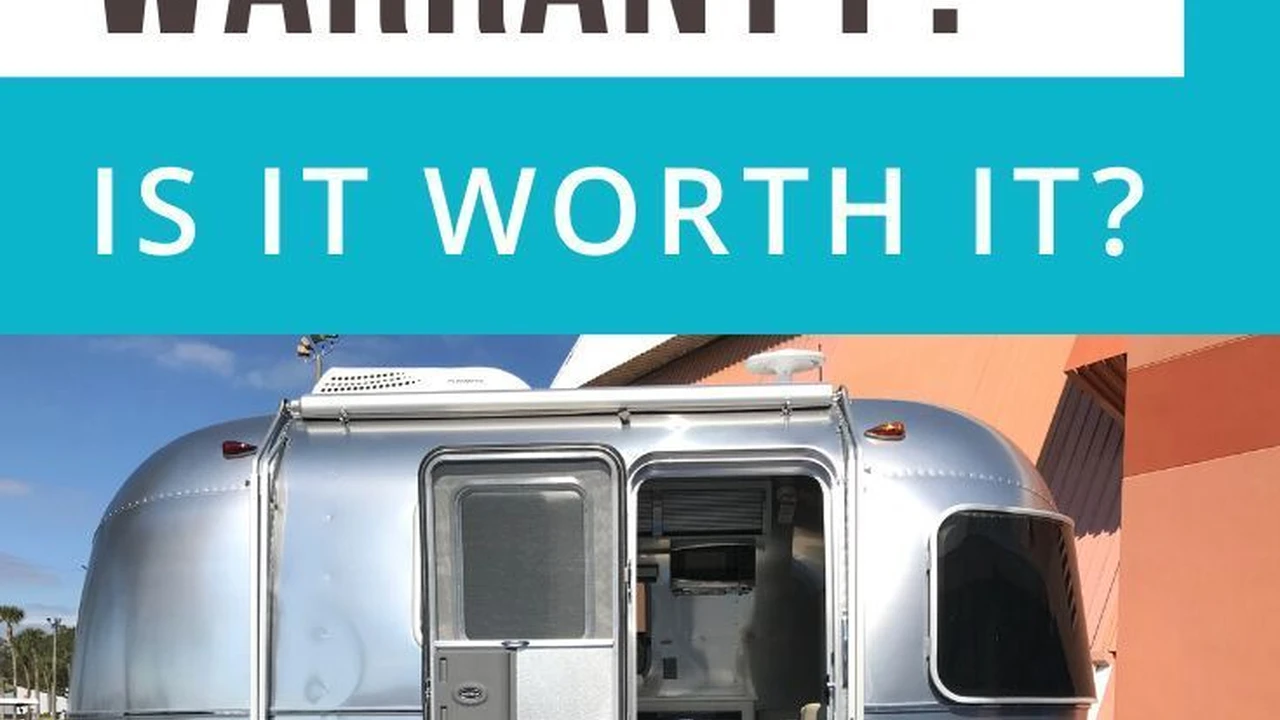RV Towing Capacity: Understanding Your Limits

Understanding RV Weights and Capacities A Comprehensive Guide
So you're thinking about buying an RV? That's fantastic! The open road, the freedom to explore, and the comfort of bringing your home with you – it's an amazing experience. But before you jump in and drive off into the sunset, there's a crucial aspect you need to understand: RV weights and capacities. Ignoring these numbers can lead to serious safety issues, damage your vehicle, and even void your warranty. This guide will break down everything you need to know in a clear, easy-to-understand way.
Decoding RV Weight Terminology Understanding Key Definitions
Let's start with the basics. RV weight terminology can be a bit confusing, but once you grasp the definitions, it becomes much easier to navigate. Here are some key terms you'll encounter:
- GVWR (Gross Vehicle Weight Rating): This is the maximum permissible weight of the RV when fully loaded. It includes the weight of the RV itself, plus all passengers, cargo, fluids (water, propane, etc.), and accessories. Think of it as the absolute upper limit.
- UVW (Unloaded Vehicle Weight) or Dry Weight: This is the weight of the RV as it leaves the factory, without any passengers, cargo, or fluids. It's the lightest the RV will ever be.
- CCC (Cargo Carrying Capacity): This is the maximum weight of passengers, cargo, fluids, and accessories that you can add to the RV. It's calculated by subtracting the UVW from the GVWR (CCC = GVWR - UVW).
- GAWR (Gross Axle Weight Rating): This is the maximum weight that can be supported by each individual axle (front and rear). Exceeding the GAWR can damage the axle and compromise safety.
- GCWR (Gross Combined Weight Rating): This applies if you're towing a trailer. It's the maximum permissible weight of the tow vehicle and the trailer combined, including everything in both.
- Tongue Weight (for trailers): This is the amount of weight the trailer exerts on the hitch of the tow vehicle. It's typically 10-15% of the trailer's GVWR.
- Hitch Weight (for fifth-wheel trailers): Similar to tongue weight, but applies to fifth-wheel trailers. It's the amount of weight the trailer exerts on the fifth-wheel hitch in the bed of the tow vehicle.
Understanding these terms is the first step in ensuring you're operating your RV safely and within its limits.
Calculating Your RV's Cargo Carrying Capacity Ensuring Safe Loading
Now that you know the definitions, let's talk about how to calculate your RV's CCC. As mentioned earlier, the formula is simple: CCC = GVWR - UVW. However, it's important to remember that the UVW provided by the manufacturer is often just an estimate. It doesn't always include all factory-installed options or dealer-added accessories. To get a more accurate UVW, consider weighing your RV at a certified scale before you start loading it up.
Once you have a reliable UVW, subtract it from the GVWR to determine your CCC. This is the amount of weight you have available for everything you'll be adding to the RV. Be sure to account for:
- Passengers: Each person adds weight, so factor in the weight of all occupants.
- Water: Water is surprisingly heavy! A gallon of water weighs about 8.3 pounds. If you have a 50-gallon water tank, that's over 400 pounds.
- Propane: Propane tanks also add weight. A full 20-pound propane tank weighs about 37 pounds.
- Gear: This includes everything from clothes and food to camping equipment and personal belongings.
- Accessories: Any aftermarket additions, such as solar panels, satellite dishes, or upgraded batteries, will also add weight.
It's easy to underestimate how much weight you're adding to your RV. Be meticulous in your calculations and err on the side of caution. Overloading your RV can have serious consequences.
The Dangers of Overloading Your RV Safety and Performance Concerns
Exceeding your RV's weight limits can lead to a variety of problems, including:
- Compromised Handling: An overloaded RV is more difficult to control, especially in emergency situations. It can affect braking, steering, and stability.
- Increased Wear and Tear: Overloading puts extra stress on the RV's components, such as tires, axles, and suspension. This can lead to premature wear and tear and costly repairs.
- Tire Blowouts: Overloaded tires are more likely to overheat and fail, which can result in a dangerous blowout.
- Brake Failure: Overloading can strain the braking system, reducing its effectiveness and increasing the risk of brake failure.
- Structural Damage: In severe cases, overloading can cause structural damage to the RV's frame and chassis.
- Voided Warranty: Many RV manufacturers will void the warranty if you consistently exceed the weight limits.
The risks associated with overloading are significant. It's simply not worth jeopardizing your safety and your investment. Always stay within the specified weight limits.
RV Weight Scales Finding and Using Certified Weigh Stations
The best way to ensure you're not exceeding your RV's weight limits is to have it weighed at a certified scale. These scales are typically found at truck stops, weigh stations, and some RV dealerships.
Here's how to find a certified scale:
- Truck Stops: Many truck stops have certified scales for weighing commercial vehicles. Look for signs indicating "CAT Scale" or "Certified Weight Scale."
- Weigh Stations: Some states have weigh stations along major highways. These are primarily for commercial vehicles, but they may also allow RVs to be weighed.
- RV Dealerships: Some RV dealerships have certified scales on-site. Call ahead to check availability and pricing.
- Online Directories: Search online for "certified weight scales near me" to find a list of local options.
When you go to weigh your RV, be sure to have it fully loaded with everything you would normally carry on a trip. This includes passengers, gear, fluids, and accessories. Follow the instructions provided at the scale. You'll typically need to drive the RV onto the scale and wait for the weight to be displayed.
The scale will provide you with the weight of each axle, as well as the total weight of the RV. Compare these numbers to the GAWR and GVWR to ensure you're within the limits. If you're towing a trailer, you'll also want to weigh the trailer separately and check the GCWR.
Understanding Tire Load Capacity and Inflation Pressures Ensuring Safe Tire Operation
Your RV's tires play a critical role in supporting its weight. It's essential to understand the tire load capacity and inflation pressures to ensure safe operation.
The tire load capacity is the maximum weight that each tire can safely carry. This information is typically printed on the sidewall of the tire. Look for a marking that says "Max Load" followed by a weight in pounds or kilograms.
The inflation pressure is the amount of air pressure inside the tire. Maintaining the correct inflation pressure is crucial for optimal performance and safety. The recommended inflation pressure for your RV's tires can be found on a sticker inside the driver's side door or in the owner's manual.
Here are some important tire safety tips:
- Check the Inflation Pressure Regularly: Use a tire pressure gauge to check the inflation pressure before each trip and at least once a month.
- Inflate to the Recommended Pressure: Inflate the tires to the pressure specified on the sticker or in the owner's manual. Do not exceed the maximum pressure listed on the tire sidewall.
- Inspect Tires for Wear and Damage: Regularly inspect the tires for signs of wear, such as uneven tread wear, cracks, or bulges. Replace tires that are worn or damaged.
- Use the Correct Tire Size and Type: Make sure you're using the correct tire size and type for your RV. Consult the owner's manual or a tire professional for recommendations.
- Consider Tire Pressure Monitoring Systems (TPMS): TPMS can provide real-time tire pressure and temperature readings, alerting you to potential problems before they become serious.
Proper tire maintenance is essential for safe RV travel. Ignoring your tires can lead to blowouts, accidents, and costly repairs.
Matching Your Tow Vehicle to Your Trailer Understanding Towing Capacity
If you're planning to tow a trailer, it's crucial to match your tow vehicle to the trailer. This means ensuring that your tow vehicle has sufficient towing capacity to safely pull the trailer.
The towing capacity of your tow vehicle is the maximum weight that it can safely tow. This information can be found in the owner's manual or on a sticker inside the driver's side door.
When determining the towing capacity, it's important to consider the GCWR (Gross Combined Weight Rating). The GCWR is the maximum permissible weight of the tow vehicle and the trailer combined, including everything in both.
Here are some tips for matching your tow vehicle to your trailer:
- Determine the Trailer's GVWR: Find the GVWR of the trailer you're planning to tow. This is the maximum weight of the trailer when fully loaded.
- Check the Tow Vehicle's Towing Capacity: Find the towing capacity of your tow vehicle.
- Ensure the Towing Capacity Exceeds the Trailer's GVWR: The towing capacity of the tow vehicle should be greater than the GVWR of the trailer.
- Consider the GCWR: Make sure that the combined weight of the tow vehicle and the trailer does not exceed the GCWR.
- Factor in Passengers and Cargo: Remember to factor in the weight of passengers and cargo in both the tow vehicle and the trailer.
- Use a Weight Distribution Hitch: A weight distribution hitch can help to distribute the weight of the trailer more evenly across the axles of the tow vehicle, improving handling and stability.
Towing a trailer that is too heavy for your tow vehicle can be dangerous. It can lead to loss of control, brake failure, and accidents. Always make sure you're towing within the limits of your tow vehicle.
RV Weight Distribution Hitches Improving Towing Stability and Safety
A weight distribution hitch is a device that helps to distribute the weight of a trailer more evenly across the axles of the tow vehicle. This can improve handling and stability, especially when towing heavier trailers.
Weight distribution hitches work by using spring bars to transfer some of the weight from the rear axle of the tow vehicle to the front axle and the trailer axles. This helps to level the tow vehicle and reduce sway.
Here are some benefits of using a weight distribution hitch:
- Improved Handling: Weight distribution hitches can improve handling and stability, making it easier to control the tow vehicle and trailer.
- Reduced Sway: Weight distribution hitches can help to reduce sway, which is the tendency of the trailer to swing back and forth behind the tow vehicle.
- Level Tow Vehicle: Weight distribution hitches help to level the tow vehicle, reducing the risk of sagging or bottoming out.
- Increased Towing Capacity: In some cases, using a weight distribution hitch can increase the towing capacity of the tow vehicle.
There are several types of weight distribution hitches available, including:
- Spring Bar Hitches: These are the most common type of weight distribution hitch. They use spring bars to transfer weight.
- Trunnion Bar Hitches: These are similar to spring bar hitches, but they use trunnion bars instead of spring bars. Trunnion bars are typically stronger and more durable than spring bars.
- Sway Control Hitches: These hitches include sway control features to further reduce sway.
If you're planning to tow a heavy trailer, a weight distribution hitch is a worthwhile investment. It can significantly improve safety and handling.
RV Suspension Upgrades Enhancing Ride Quality and Load Capacity
If you're looking to improve the ride quality and load capacity of your RV, consider upgrading the suspension. There are several aftermarket suspension upgrades available that can make a significant difference.
Here are some common RV suspension upgrades:
- Air Springs: Air springs are inflatable airbags that can be added to the suspension to provide extra support and cushioning. They can be adjusted to accommodate different load conditions.
- Helper Springs: Helper springs are additional springs that are added to the existing suspension to increase load capacity.
- Shocks: Upgrading the shocks can improve ride quality and handling. Look for shocks that are specifically designed for RVs.
- Leaf Springs: Replacing the leaf springs with heavier-duty springs can increase load capacity and improve ride quality.
- Stabilizer Bars: Adding or upgrading stabilizer bars can reduce body roll and improve handling.
Benefits of upgrading your RV's suspension include:
- Improved Ride Quality: Suspension upgrades can make the ride smoother and more comfortable.
- Increased Load Capacity: Suspension upgrades can increase the amount of weight that the RV can safely carry.
- Improved Handling: Suspension upgrades can improve handling and stability.
- Reduced Body Roll: Suspension upgrades can reduce body roll, which is the tendency of the RV to lean during turns.
If you're experiencing a rough ride or you're consistently exceeding the RV's weight limits, consider upgrading the suspension. It can make a significant difference in your RVing experience.
RV Leveling Systems Ensuring a Comfortable and Stable Campsite
Leveling your RV is essential for a comfortable and stable campsite. An unlevel RV can cause problems with appliances, plumbing, and even sleep. Fortunately, there are several RV leveling systems available to make the process easier.
Here are some common RV leveling systems:
- Leveling Blocks: Leveling blocks are simple and inexpensive. They are placed under the tires to raise the RV to the desired level.
- Leveling Ramps: Leveling ramps are similar to leveling blocks, but they provide a gradual slope for driving onto.
- Automatic Leveling Systems: Automatic leveling systems use hydraulic or electric jacks to automatically level the RV. These systems are more expensive, but they are very convenient.
Benefits of using an RV leveling system include:
- Comfortable Campsite: A level RV provides a more comfortable living space.
- Proper Appliance Operation: Many RV appliances, such as refrigerators and stoves, require a level surface to operate properly.
- Proper Plumbing Drainage: A level RV ensures that the plumbing drains properly.
- Improved Sleep: Sleeping in a level RV is much more comfortable.
No matter what type of RV you have, a leveling system is a worthwhile investment. It will make your camping experience much more enjoyable.
Recommended Products for RV Weight Management and Safety
Here are some recommended products that can help you manage your RV's weight and ensure safety:
- CAT Scale: CAT Scales are certified weight scales located at truck stops across the country. They provide accurate weight readings for RVs and other vehicles.
- Tire Pressure Monitoring System (TPMS): TPMS can provide real-time tire pressure and temperature readings, alerting you to potential problems before they become serious. A popular option is the TST Tire Pressure Monitoring System, known for its reliability and ease of use. Pricing typically ranges from $200-$500 depending on the number of sensors needed. Use cases include preventing blowouts and improving fuel efficiency. Compared to cheaper, less reliable TPMS systems, the TST offers superior accuracy and durability.
- Weight Distribution Hitch: A weight distribution hitch can help to distribute the weight of a trailer more evenly across the axles of the tow vehicle. The Equal-i-zer 4-Point Sway Control Hitch is a highly rated option. It costs around $800-$1200. Benefits include improved handling and reduced sway. It is a more robust solution compared to basic spring bar hitches.
- RV Leveling System: An RV leveling system can make it easy to level your RV at the campsite. Consider the Lippert Components Ground Control 3.0 Automatic Leveling System. Installation typically costs between $2000-$4000. This system provides automatic leveling with the touch of a button. It's a significant upgrade from manual leveling blocks.
- RV Tire Covers: Protect your tires from UV damage with RV tire covers. The ADCO Tire Covers are a popular and affordable choice, costing around $30-$50 per pair. They prevent cracking and dry rot, extending the life of your tires. A simple, yet effective preventative measure.
RV Weight Considerations for Different RV Types Class A Class B and Class C
The weight considerations can vary depending on the type of RV you are considering:
- Class A RVs: These are the largest type of RV and typically have the highest GVWRs. Weight management is crucial for Class A RVs.
- Class B RVs (Camper Vans): These are smaller and more nimble than Class A RVs, but they still have weight limits that need to be considered. Space is limited, so careful planning is needed to avoid overloading.
- Class C RVs: These RVs are built on a truck chassis and offer a good balance of size and features. Weight management is still important for Class C RVs.
- Travel Trailers: These are towed behind a tow vehicle and require careful matching of the tow vehicle to the trailer.
- Fifth-Wheel Trailers: These are larger and heavier than travel trailers and require a more powerful tow vehicle.
Regardless of the type of RV you choose, understanding and managing weight is essential for safety and enjoyment.
RV Weight and Legal Regulations State and Federal Laws
RV weight is not just a matter of safety; it's also a matter of law. State and federal regulations govern RV weight limits. Exceeding these limits can result in fines, penalties, and even being ordered to offload cargo.
Here are some key points to consider:
- State Weight Laws: Each state has its own laws regarding RV weight limits. These laws typically specify the maximum GVWR, GAWR, and GCWR allowed on state roads.
- Federal Bridge Formula: The federal bridge formula is a mathematical equation that determines the maximum weight allowed on bridges. RVs must comply with this formula.
- Commercial Vehicle Regulations: In some cases, larger RVs may be subject to commercial vehicle regulations, such as requiring a commercial driver's license (CDL).
- Weigh Stations: RVs may be required to stop at weigh stations along major highways.
It's important to be aware of the weight laws in the states you'll be traveling through. You can find this information on the state's Department of Transportation website.
RV Weight and Insurance Implications Understanding Coverage Requirements
RV weight can also have implications for insurance coverage. Some insurance companies may deny claims if the RV was overloaded at the time of an accident.
Here are some key points to consider:
- Policy Exclusions: Some RV insurance policies may have exclusions for damage caused by overloading.
- Claim Denials: If an RV is found to be overloaded at the time of an accident, the insurance company may deny the claim.
- Liability: If an overloaded RV causes an accident, the owner may be held liable for damages.
It's important to review your RV insurance policy carefully and understand the coverage requirements. Make sure you're operating your RV within the specified weight limits to avoid potential insurance issues.
RV Weight and Resale Value Maintaining Optimal Condition
Proper weight management can also help to maintain the resale value of your RV. An RV that has been consistently overloaded is more likely to experience wear and tear, which can negatively impact its value.
Here are some tips for maintaining the resale value of your RV:
- Stay Within Weight Limits: Always operate the RV within the specified weight limits.
- Regular Maintenance: Perform regular maintenance, such as tire rotations, brake inspections, and suspension checks.
- Keep Records: Keep records of all maintenance and repairs.
- Store Properly: Store the RV properly when not in use, such as covering it to protect it from the elements.
By taking care of your RV and managing its weight properly, you can help to maintain its resale value.
Final Thoughts on RV Weight Management Prioritizing Safety and Enjoyment
Understanding and managing RV weight is crucial for safety, legal compliance, insurance coverage, and resale value. By following the tips outlined in this guide, you can ensure that you're operating your RV safely and enjoying your RVing adventures to the fullest.
Remember to prioritize safety and always err on the side of caution when it comes to weight. Happy RVing!
:max_bytes(150000):strip_icc()/277019-baked-pork-chops-with-cream-of-mushroom-soup-DDMFS-beauty-4x3-BG-7505-5762b731cf30447d9cbbbbbf387beafa.jpg)






